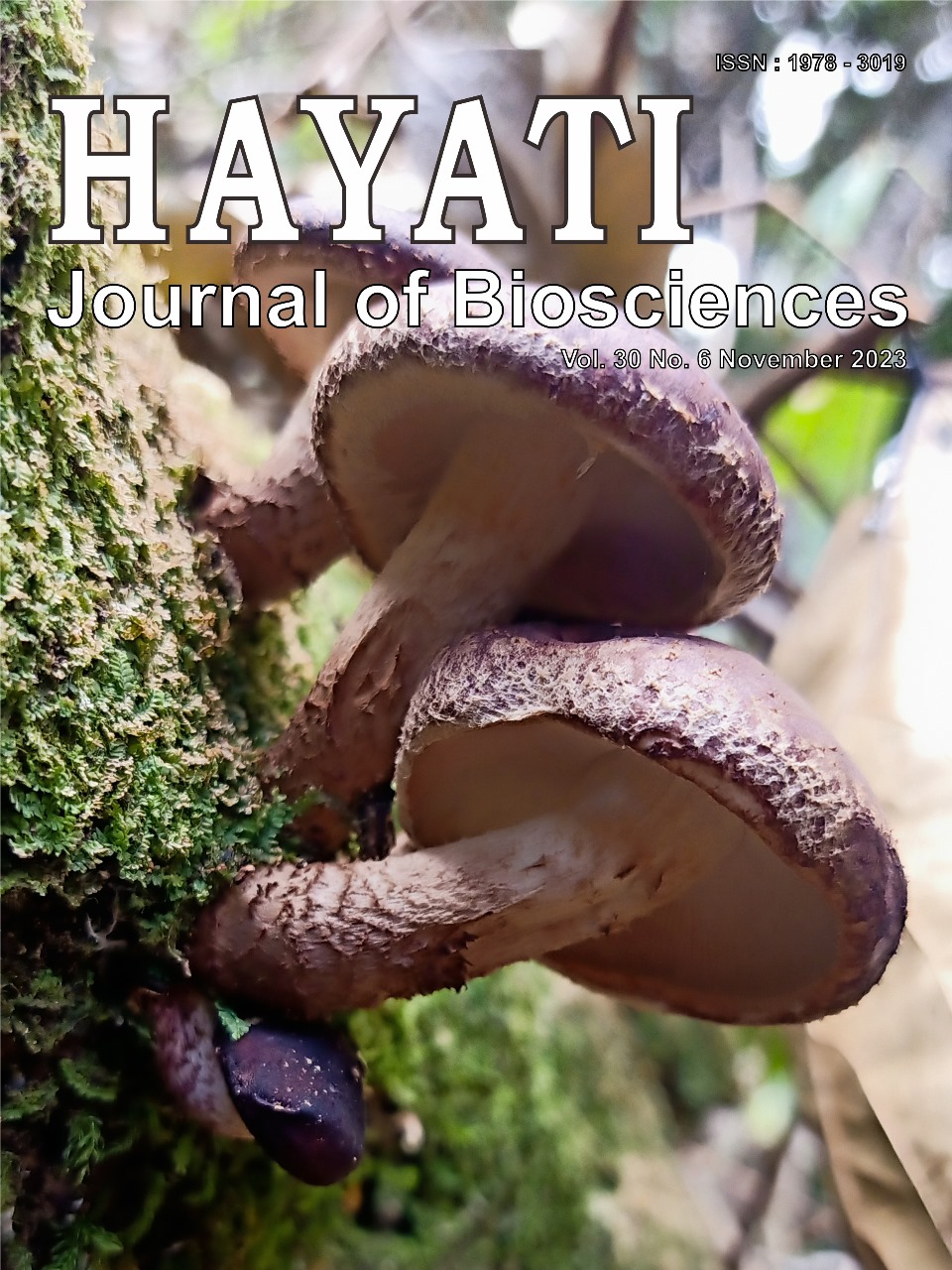Bacteriocinogenic Lactic Acid Bacteria Isolated from Mangrove Sediment in Indonesia: Growth Optimization, Bacteriocin Production, and its Application in Food Preservation
Abstract
The mangrove ecosystem is unique because it is located between marine and land. Little research is exploring lactic acid bacteria (LAB) from mangrove ecosystems. The LAB LG71 isolate is successfully isolated from the sediment of mangrove ecosystems on the coast of Logending, Jawa Tengah (Indonesia). In this study, we aimed to know the effect of glucose supplementation on the growth of LG71 isolate, bacteriocin production, and its application in food preservation. The characterization results showed that the LG71 isolate is Lactobacillus sp. Interestingly, the LG71 isolate is catalase-positive since this character is rarely found in the LAB group. Supplementing 0.25% glucose to MRSB medium and an incubation time of 15 hours is the best treatment for producing Lactobacillus LG71 isolate cell biomass. A 2% concentration of crude extract of Lactobacillus LG71 bacteriocins is the best concentration against Salmonella typhi both during in vitro and in vivo tests in fish balls. The addition of glucose affects the production of Lactobacillus LG71 cell biomass, and the bacteriocin derived from Lactobacillus LG71 gives increased protection against S. typhi and offers an alternative for food preservation.
Downloads
Copyright (c) 2023 Dyah Fitri Kusharyati, Oedjijono, Taruna Dwi Satwika, Dwiana Muflihah Yulianti, Afifah Mariana, Anwar Rovik

This work is licensed under a Creative Commons Attribution-NonCommercial 4.0 International License.
HAYATI J Biosci is an open access journal and the article's license is CC-BY-NC. This license lets others distribute, remix, tweak, and build upon author's work, as long as they credit the original creation. Authors retain copyright and grant the journal/publisher non exclusive publishing rights with the work simultaneously licensed under a https://creativecommons.org/

























.png) IPB University
IPB University Department of Biology
Department of Biology The Indonesian Biological Society
The Indonesian Biological Society 

